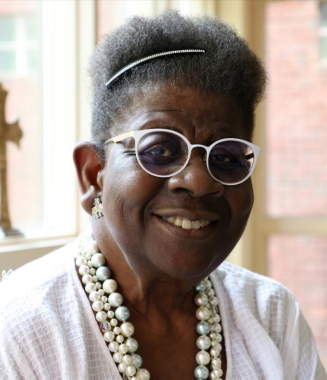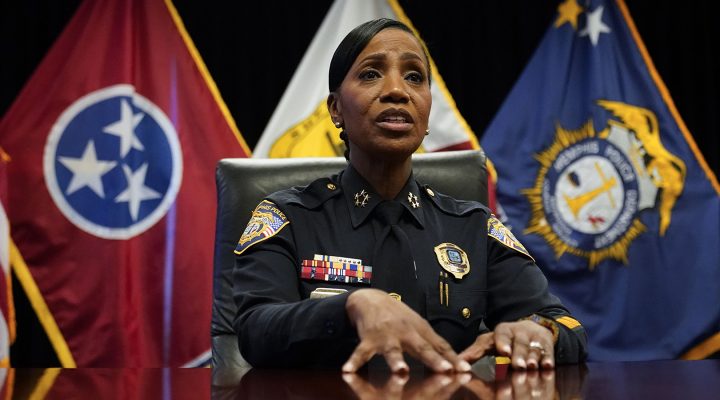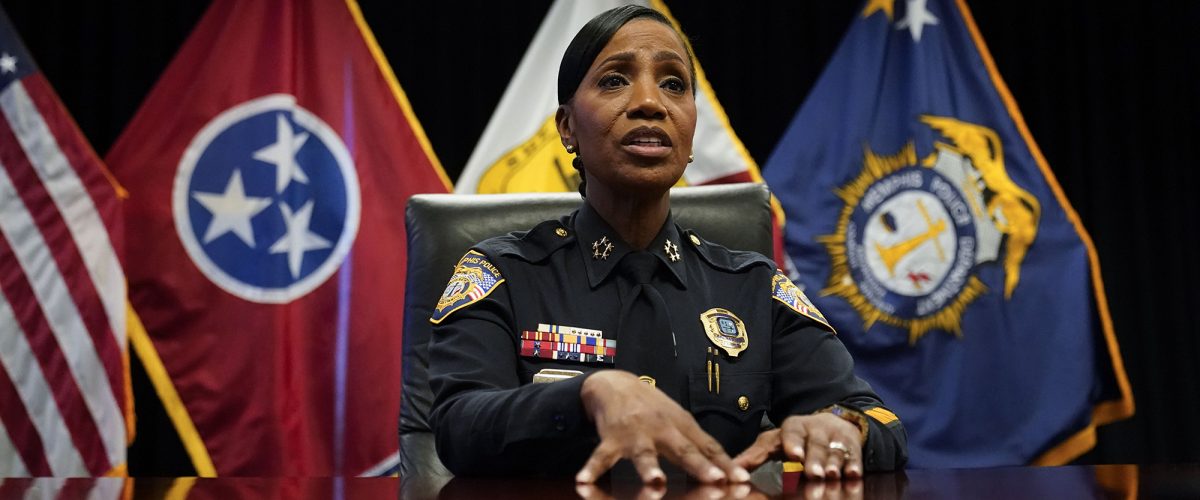A few days after the death of Tyre Nichols at the hands of five Memphis police officers, Chief C.J. Davis stood in front of cameras lamenting the inhumanity of the officers. She sounded like the “good one” in this drama.

Catherine Meeks
But quite the contrary is true. She and all other police chiefs across America who do not take a strong stand against excessive force and the violence practiced in their departments are complicit in this inhumane behavior.
In the case of Chief Davis, she participated in Atlanta as commander of the Red Dog Unit, which was responsible for entering a home of a 90-year-old woman who was mistakenly shot as police searched for a criminal who did not reside at her address. The Scorpion Unit in Memphis was very much like this unit. Even though she had the previous experience in Atlanta and knew about the propensity to use excessive force, she allowed the Memphis unit to operate.
“When a group of folks are trained to be inhumane, it is not fair to hold their inhumanity only against them.”
Many complaints were made to the Memphis Police Department about the behavior of the officers who made up the Scorpion Unit. If the chief did not know about them, she should have known. Some of those who reported mistreatment by that unit claim never to have gotten any response. When a group of folks are trained to be inhumane, it is not fair to hold their inhumanity only against them without holding accountable those who helped foster that behavior as well. Thus, the Memphis Police Department chief should be held accountable for the barbaric work of the team she helped to organize and endorsed to go out into so-called “high crime” communities — code for “poor distressed Black communities” in Memphis.
My 50-plus years as an advocate for racial justice leads me to the conclusion that all who are complicit in maintaining an unjust system should be held accountable.
Communities suffering from poverty, violence, crime and many other challenges would be better served by a more humane approach to policing. Previous initiatives in this country to clean up such areas with a holistic approach and stabilize them worked better than treating them as war zones and dispatching warriors with a license to do whatever they wish.
“Policemen in the Scorpion Unit had beaten up folks before, they just had not killed anyone.”
This is what happened in Memphis, and it got out of hand. Policemen in the Scorpion Unit had beaten up folks before, they just had not killed anyone. If Tyre Nichols had not died, we still would not be having all these conversations today. They went too far, and as soon as they did, they learned how little support they have.
These officers must feel betrayed. They were led to believe they could practice tactics of terror with the blessing of all, but as soon as they went overboard, that support evaporated.
At no time have we seen police officers who are accused of using excessive force be handled so fast. Within two weeks, they were fired, arrested and charged. We can be impressed with that behavior, or we can be skeptical. Skepticism seems the better response because there was a necessity to provide as much cover as possible for the basket full of bad decisions that led to the formation of that Scorpion Unit in the first place.
Second, these officers all were Black and therefore not totally free of being viewed as criminals themselves. It was interesting to see the two sets of photos of the officers. In one set, perhaps from when they graduated from the Police Academy, they wore uniforms. In another, they wore plain clothes and appeared to be a street gang. Why were those two photographs necessary? Perhaps the idea was to help the public feel less favorable toward them. It was sure to work.
“Everyone who participated in creating that space needs to be held accountable.”
You did not have to live in Memphis to have many strong negative feelings toward them for what they did. But it is important to be aware that while each person is responsible for himself, they should not have been encouraged to be what they became. Everyone who participated in creating that space needs to be held accountable.
The only remedy to the 1,000 to 1,500 yearly questionable deaths at the hands of the police as reported in the Washington Post database is to name the leadership as complicit and require them to change. It can be done. In Eugene, Ore., San Francisco and New Orleans, police work has been reimagined.
New Jersey has begun NJ-Communities for Accountable Policing, which is made up of grassroots activists, racial and social justice advocates, folks who have had unfortunate experiences with police, faith leaders and legal experts who pursued the work of making policing more about public safety than law enforcement.
In spite of our addiction to violence and the slave-catching root systems that gave birth to American policing, we can change the culture. It certainly will not happen overnight because it took us a long while to get here. But we can make those changes if we decide as a country it is unacceptable to have terroristic policing.
We have a few miles to go to convince even ourselves that we wish to be more civilized when it comes to law enforcement, but we have to decide if the safety of all citizens is going to matter. We have the skill, but it remains to be seen if we have the will.
Catherine Meeks lives in Riverdale, Ga., where she serves as executive director of Absalom Jones Episcopal Center for Racial Healing. She was awarded the President Joseph R. Biden Lifetime Achievement and Service Award in August 2022 and was listed by Georgia Trend magazine as one of the 500 women to watch in Georgia in 2022. She taught African American Studies at Mercer University for 25 years. She is the author of a new book, The Night Is Long, But Light Comes in the Morning.
Related articles:
Living into lament: A white response to the killing of Tyre Nichols by police | Opinion by Robert P. Jones
The state murder of Tyre Nichols | Opinion by Lisa Sharon Harper and David Gushee


